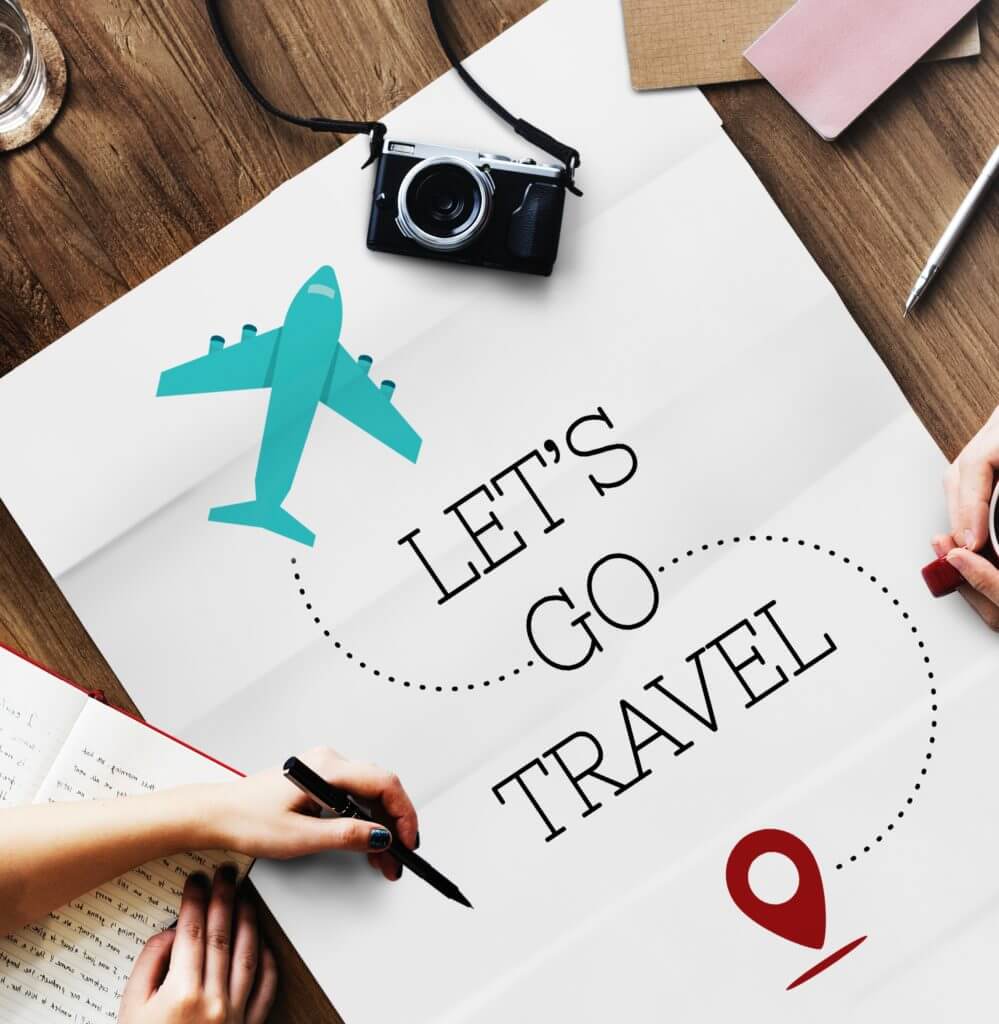As the boundaries between work and personal time blur, many individuals find themselves embarking on ‘bleisure’ trips, a blend of business and leisure travels. However, what’s the impact on your travel insurance cover? Is the protection offered by your company’s insurance policy sufficient? Or should you consider securing a personal travel insurance policy?
Table of Contents
Blended Business Trips and Personal Vacations

There’s been a substantial shift in the working pattern for many, including significant numbers who now to varying degrees work from home. A large number also work remotely from another country.
In addition there’s a growing trend of coupling personal vacations with business trips, driven partly by the rise in holiday expenses.
Jason Whelan from Multitrip.com said: “If you’re employed and add personal time to a work trip don’t presume that the company insurance will cover you if something goes wrong.
Some will, but it may depend on how long that personal time is, and what you’re doing.
For instance, if you’re taking part in a high-risk sport, such as skiing or white-water rafting, it’s unlikely that your employer’s insurance will cover you if something goes wrong, so you’ll probably need extra cover added to your personal travel insurance.”
What is Personal Travel Insurance?

Personal travel insurance is a type of insurance policy designed to cover various unforeseen events that may occur before or during your travels, providing a safety net that can help you save money and avoid serious issues.
Personal travel insurance usually has the following components:
1. Trip Cancellations, Interruptions, and Delays
Insurance policies often cover costs incurred due to trip cancellations, interruptions, or delays. These can be due to various reasons such as illness, natural disasters, or airline issues.
2. Medical Emergencies
In case of a medical emergency while travelling, your insurance can cover your medical expenses, including hospitalisation, treatment, and even medical evacuation if necessary.
3. Baggage and Personal Belongings
Personal travel insurance often covers the loss, theft, or damage of your baggage and personal belongings, including passports and other important documents.
4. Accidental Death and Dismemberment
Some policies offer coverage in the unfortunate event of death or serious injury resulting from an accident during your trip.
5. Liability Coverage
In case you are held legally liable for causing harm or damage to a person or property while on your trip, the policy can cover your legal liabilities and associated legal expenses.
6. Add-On Covers
Insurance providers often offer add-ons or riders to enhance your coverage, which might include:
- Adventure Sports Coverage: Covering accidents or injuries sustained while participating in adventure sports eg winter sports such as snowboarding and skiing.
- Pre-existing Medical Conditions: Providing coverage for complications arising from pre-existing medical conditions.
Benefits of Personal Travel Insurance

- Peace of Mind: Travel with a peace of mind knowing that you are covered against unforeseen events.
- Financial Protection: Protect yourself from substantial financial losses that can occur due to medical emergencies or trip cancellations.
- Emergency Assistance: Many insurers offer 24/7 emergency assistance, providing crucial support in times of need.
How to Choose Personal Travel Insurance
- Research: Start with researching various insurance providers and comparing their offerings.
- Coverage: Ensure that the policy covers all the aspects that are crucial for your travel needs.
- Exclusions: Pay attention to the exclusions in the policy to avoid surprises later.
- Premium: Consider the premium amount and the coverage it offers to find a policy that offers good value for money.
Personal travel insurance is a vital tool for any traveller, offering a protective cushion against the uncertainties that come with travelling. Whether it’s a weekend getaway or a long-term international trip, buying a good personal travel insurance policy can help ensure a safe and hassle-free travel experience.
Remember to read the policy documents carefully to understand the scope of coverage and any applicable terms and conditions.
What Is The Difference Between Business Travel Insurance and Personal Travel Insurance?

While personal travel insurance is mainly centred around providing coverage for leisurely travel, business travel insurance comes packed with features that understand and cater to the specific needs and potential risks associated with business trips.
Features unique to business travel insurance
- Business Equipment Coverage – Business travel insurance frequently offers coverage for loss, theft, or damage to business equipment, including laptops, projectors, and other tools necessary for work.
- Corporate Liability – It provides coverage against legal liabilities that might arise while conducting business during the trip. This could include property damage or personal injury claims.
- Additional Business-related Covers – Other covers include compensation for the theft of company money, emergency courier services for essential business documents, and hire of essential business equipment in case of loss or delay in receiving the checked-in equipment.
- Higher Limits – Business travel insurance policies can have higher coverage limits for various features compared to personal travel insurance, to meet the requirements of business travellers.
- Flexible Travel Disruptions – Given the dynamic nature of business trips, these policies generally offer a wider scope of coverage for trip cancellations, interruptions, and delays.
- Special Add-ons – Additional add-ons such as coverage for business meetings or conferences are available which cover the financial loss if the event is cancelled or postponed.
- Health and Well-being – While personal insurance covers emergency medical expenses, business policies may go a step further to include well-being services such as referrals to English-speaking doctors and 24/7 health hotlines.
What Travel Insurance Do You Need For Bleisure Trips?

Navigating the insurance needs for “bleisure” trips, which combine both business and leisure elements, can be a bit complex. Here are the key points to consider:
Understanding the Dual Nature of Bleisure
- Business Component – Ensure that the policy covers the business part of your trip, including coverage for business equipment and other work-related assets.
- Leisure Component – Look for a policy that extends coverage to your leisure activities, including recreational activities you plan to engage in during your leisure time.
Key Coverage Areas
- Trip Cancellations and Delays – Opt for a policy that protects you against the financial repercussions of trip cancellations or delays affecting either the business or leisure part of your trip.
- Medical Coverage – Ensure the policy covers medical emergencies that might arise during any part of your trip, including activities undertaken during leisure time.
Additional Covers
- Personal Belongings – Consider a policy that offers comprehensive coverage for your personal belongings, including both business and leisure items.
- Adventure Activities – If your leisure activities include adventure sports (eg Skiing, SkyDiving)or other high-risk activities, consider a policy that offers coverage for accidents or injuries sustained during these activities.
Policy Flexibility
- Extension Options – Consider a policy that allows for extensions to accommodate any changes in your travel plans, effectively covering both the business and leisure components of your trip.
- Customisation – Look for policies that offer the option to add or remove coverage elements to suit the specific needs of your bleisure trip.
Consulting with Experts
- Employer’s Policy – Consult with your employer to understand the extent of the coverage provided by the company’s business travel insurance policy.
- Insurance Advisor – Consider seeking advice from an insurance advisor to find the best policy to cover all aspects of your bleisure trip.
Does Business Travel Insurance Via Your Employer Cover You if You Extend Your Business Trip For Personal Travel?

Whether or not business travel insurance through your employer covers personal travel extensions can vary depending on the specific policy.
Typically, employer-provided business travel insurance focuses on covering events and contingencies that relate to the business aspects of the trip. Here’s what you need to know about extending your business trip for personal travel:
Examining the Policy
- Understanding the Terms – It’s crucial to closely examine the terms and conditions of your employer’s business travel insurance policy to understand the extent of the coverage.
- Duration of Coverage – Many policies have a defined coverage duration, beyond which the protection lapses. Extending your trip for personal reasons may exceed this duration, resulting in a lack of coverage for the extended period.
Personal Extensions
- Partial Coverage – Some business travel insurance policies might offer partial coverage for personal extensions to a business trip, but this is generally limited to a specific number of days.
- Additional Premium – In certain circumstances, it may be possible to extend the coverage for personal travel by paying an additional premium.
Seeking Clarification
- Consult with Your HR – If unsure, it is always best to consult with your HR department or the person responsible for managing corporate insurances in your organisation to get clarity on this matter.
- Written Confirmation – For your own safety and assurance, it is recommended to obtain written confirmation regarding the insurance cover for the extended period of personal travel.
Personal Travel Insurance
- Safeguarding Your Trip – In the absence of adequate coverage from your employer’s business travel insurance, it might be wise to purchase personal travel insurance to safeguard your extended personal travel.
- Customisable Plans – Personal travel insurance plans are customisable and can be tailored to suit your needs, ensuring protection against a wide range of eventualities, including health-related emergencies, trip cancellations, and loss of baggage.
Conclusion
While business travel insurance via your employer may offer some leeway for personal travel extensions, it is generally limited. To ensure that you are fully protected during your personal travel extension, you may want to consider buying a personal travel insurance policy. Before you do this though obviously clarify the position as best you can.
Please note the information in this article is for general guidance and input. You need to make your own decisions regarding any products and services and if need be consult an expert, such as an insurance broker, and get their advice.